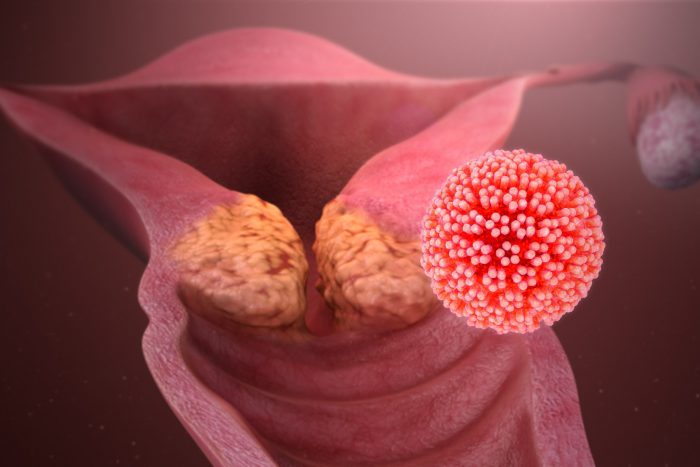
HPV and Cancer Overview
Cells can undergo changes as a result of HPV infection, which might eventually develop into cancer, especially if treatment is neglected. Once high-risk strains of HPV infect cells, they disrupt their communication and induce uncontrollable growth.
Although the immune system can usually recognize and control infected cells, HPV-infected cells may persist and form a group of precancerous cells. Without HPV screening and treatment, these cells may progress to cancer.
Research demonstrated that the progression from HPV-infected cervical cells to a cancerous tumor can take up to 10 to 20 years or more.
Current Research on HPV and Cervical Cancer
For women with high-risk HPV infections, several factors can increase the likelihood of the infection leading to precancerous cervical cells. These factors include:
- Having an aggressive HPV type, such as HPV 16 or HPV 18, which requires diagnostic testing with a colposcopy.
- Smoking cigarettes can also increase the risk, but quitting smoking can help the body fight against HPV.
- A compromised immune system due to conditions like HIV or immunosuppressive drugs may require diagnostic testing and follow-up with a healthcare provider.
Clinical trials are an essential step toward discovering better ways to prevent, diagnose, and treat diseases like HPV-related cancers. The National Cancer Institute (NCI) is currently conducting a number of studies to get a better understanding on how HPV infects cervical cells and causes cervical cancer. Luckily, the NCI’s Cancer Information Service can provide information on HPV-related trials in the United States.
The NCI is engaged in several research efforts to enhance our understanding of HPV and its impact on cancer:
- The Division of Cancer Epidemiology and Genetics (DCEG) conducts studies that investigate HPV infections and cervical cancers to evaluate screening practices, develop new approaches for risk assessment, and refine tools to detect precancerous changes early. Additionally, experts who work at DCEG led the first clinical trial that studies HPV vaccines on the population.
- The Division of Cancer Prevention (DCP) conducts and promotes research on the prevention and early detection of HPV-related cancers and related conditions.
- The Division of Cancer Control and Population Sciences (DCCPS) funds programs related to HPV and investigates implementation strategies to promote HPV vaccination in areas with low vaccination rates.
- The Center for Cancer Research (CCR) houses researchers and clinicians who are exploring the latest developments in cancer-related research. CCR scientists work on various biological and biomedical problems, including HPV. Moreover, investigators in CCR conducted the initial research that led to the development and characterization of HPV vaccines.
HPV and Cancer Treatment Recommendation
If you have an HPV related cancer you may need surgery, chemotherapy or in some cases a combination of surgery and chemotherapy. This is why it is so important to get screened regularly before the potential cancer has a chance to spread.
It is imperative to talk with your healthcare provider about getting the HPV vaccine as it can protect you against cancer causing strains of HPV.
References:
https://www.cdc.gov/hpv/parents/cancer.html
https://sciworthy.com/how-the-hpv-virus-causes-cells-to-become-cancer/
https://www.cancer.gov/search/results?swKeyword=HPV






